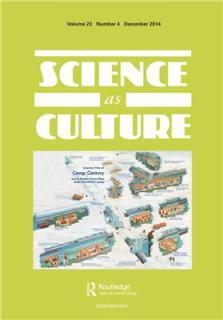Sep 22 2015
Research published recently in Science as Culture suggests that men are surprisingly positive and open to the concept of having cancer-detecting biosensors implanted within their bodies – effectively making them cyborgs.
 CSAC
CSAC
Such auto biotechnologies can aid in the treatment or repair of tissue and organs without external human direction or control. They represent version 2.0 of cyborgs as originally invented by Clynes and Kline in the early 1960’s, referred to as the bodily adaptations required by individuals to live in outer space. Since then, science and technology have made giant leaps forward, leading to the innovative concept of ‘everyday cyborgs’, now increasingly forming an integral part of our reality.
Cyborgs are common in science fiction and are traditionally perceived as lacking emotion and human feeling. ‘Everyday cyborgs’ however, are real people who just happen to live with highly sophisticated devices – devices which could save lives.
In the article ‘Cyborgs in the Everyday: Masculinity and Biosensing Prostate Cancer ’ lead author Gill Haddow explores the phenomenon, portraying a new version of cyborg that goes beyond the traditional science-fiction monster stereotype we are used to. Haddow argues that biosensors are the key devices that differentiate a cyborg from default human beings, sensing when cancer tumours, present in organs such as the prostate, will be most vulnerable to radiotherapy.
Investigating opinions on such devices, by interviewing a dozen men recovering from prostate cancer, threw up surprisingly positive and open views. Biosensors were well received and the men interviewed felt that the devices might even be used as a long-term warning system, alerting doctors when a cancer might have returned and potentially delivering drug therapy. As reported by Haddow:
“Any possible malfunctioning of the device was a risk worth taking as it was better to be cyborg than a ‘leaker and a bleeder’ – a crude term referring to the spoiled masculine identity that can be caused by prostate cancer”.
The study suggested that having cancer increased the willingness of the individual to try anything, even life as a cyborg. In light of that, the everyday cyborg becomes neither a monster nor a future space-traveller but, in this case, a man sick and vulnerable prepared to fight for his life with an implanted device.
‘Cyborgs in the Everyday: Masculinity and Biosensing Prostate Cancer’ by Gill Haddow, Emma King, Ian Kunkler & Duncan McLaren is an open access paper published in Science as Culture. Everyday Cyborgs also feature in Haddow’s Wellcome Trust funded research ‘Animal, Mechanical and Me: The Search for Replaceable Hearts’.